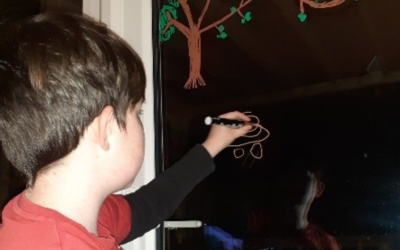How to overcome the challenge of online studying
 Author:
Author:
Laura Alexander is a Senior Lecturer at The Open University in Scotland.
Students and school pupils across Scotland have had to come to terms with abruptly switching to studying online.
A recent study by The Open University highlighted that suddenly being expected to study entirely on-screen is a much bigger handicap than many people assume.
This effect may be just as large, if not larger, for young people, our so-called “digital natives”.
Understanding this is key for educators and policy advisors developing new models of learning delivery around Covid-19.
The importance of ensuring students studying remotely have access to printed material and support to develop online study skills should not be underestimated.
 Evidence indicates that students do not approach studying on a screen in the same way they would studying on paper.
Evidence indicates that students do not approach studying on a screen in the same way they would studying on paper.
Particularly for non-narrative text, our brains have learnt not to expect on-screen content to require in-depth processing, and so we don’t engage with it as we would the same content on paper.
It may be surprising to some that “digital natives” are not necessarily better at reading on-screen.
Despite increased screen exposure and experience, data from multiple studies shows the advantage of paper-based reading over on-screen reading is actually increasing over time.
In a study of over 500 students at an American university, over 80% chose to use traditional print textbooks rather than e-books. At the end of the module almost half of those who had chosen e-books said they would not choose an e-book in future.
This was reflected in our research, with the number of students preferring to study on paper rather than on screen being around 80%, with no significant differences by age.
But what if students have no option but to study on screen? One way to significantly improve reader retention is to avoid scrolling, ie each page should fit on a single screen, supplied in a “reflowable” format, so it reformats itself to suit the device it is being viewed on.
Note-taking is key to ensuring comprehension of material studied on-screen, involving paraphrasing and organising material.
Using tablets and e-readers to have the screen at a similar angle to a book has also been shown to reduce eyestrain and headaches, as has avoiding the need for scrolling.
At The Open University our Stage-1 courses are designed to teach appropriate study skills, and students’ stage-1 study does not affect their final degree classification, giving them time to learn how to study onscreen content.
It’s important to recognise that what is happening now is an emergency response, where everyone in the sector is making a remarkable effort to switch to online teaching, but we should accept that young people are being disadvantaged.
With over 50 years of online teaching experience, The Open University is offering advice to primary and secondary schools, indeed all educational providers, as to how to develop their distance learning offer, with a number of new OU resources that focus on pivoting to online teaching.
Free resources on educational platform OpenLearn include How can you take your teaching online?
This blog was originally published by The Herald.
News
Media contacts
Media enquiries
OU in Scotland Media Relations:
Call 0131 549 7932
OU UK Press Office:
Call 01908 654316
Out-of-hours:
07901 515 891
Visit our OU UK news site

